By Nate Morrow
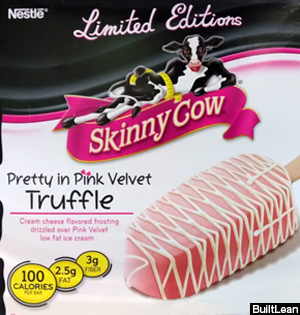
Have you noticed how many packaged foods are good for you these days?
Strolling through the lanes of my local supermarket, it struck me that we are inundated with products claiming to be healthy in some ambiguous way.
On one side of me was a vast collection of snack crackers and cookies claiming to be "all natural" or "made with whole grains." On the other was an impressive array of ice cream bars and popsicles bathed in green labels with taglines like "excellent source of calcium" or "made with real fruit."
After recovering from the shock of how disingenuous the snack food industry can be, I continued my trek through the store, trying to identify all the deceptive health claims along the way. Before making it through a second aisle, though, I gave up and came to one, inevitable conclusion: These companies are not trying to make you healthy -- they are trying to sell you a product.
With that in mind, let's take a look at a few ways these manufacturers can lure you into thinking their prepackaged, processed foods are better for you than they really are.
Fact #1 -- Just Because A Nutrition Label Says 500 Calories Doesn't Mean It's Accurate
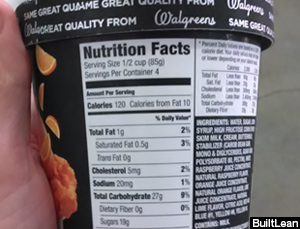
Like many other health-conscious consumers, you probably rely on the black and white panels of nutritional information to make informed decisions about what you foods eat. What you may not realize, however, is how inaccurate and misleading they can be.
In a 2011 report, the U.S. Government Accountability Office warned of a "serious oversight dilemma" regarding the Food & Drug Administration's (FDA) ability to monitor false and misleading nutrition claims. This is not surprising when you consider that the FDA allows calorie counts on the standard "Nutrition Facts" labels to be off by as much as 20 percent before they even think about getting involved. So, that 500-calorie frozen dinner you're eating may actually be as many as 600!
While they do a respectable job of making sure packaged foods have labels that meet their standards, the FDA simply does not have the resources to verify the accuracy of information on the labels, investigate claims or even enforce violations once they are found. This means that, effectively, it's left to the manufacturers to make sure their labels are accurate.
Fact #2 -- Food Companies Can Mislead You By Manipulating Serving Sizes
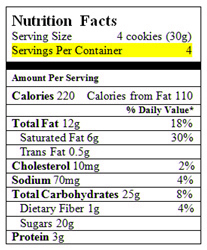
Even if the label information is accurate, though, many companies will intentionally manipulate serving sizes to make the information seem healthier. I very distinctly remember stopping for a quick breakfast and being totally shocked when I looked at the nutritional panel for a muffin I was about to put in my belly: 600 calories and 18g of fat per serving, with three servings per muffin! How many people do you know who eat one-third of a muffin at a sitting?
It's also not uncommon for a company to reduce the serving size of a product by 25 percent and then claim something like "Now with 25 percent less sugar!" Illegal? No. Inaccurate? No. Misleading? Yeah, I'd say so.
Fact #3 -- If You See 0g Of Trans Fats, The Food Product May Still Have Trans Fats
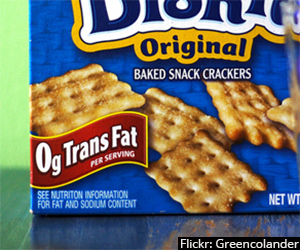
A little known fact about nutritional guidelines in the U.S. is that any amount of fat or sugar under 0.5g per serving can be listed as 0g. This creates a lot of room for misleading statements and confusion about the nutritional value of foods.
One side effect of this rule is that more and more foods are hitting the shelves stamped with "0g of trans fats" in big, bold type on the front of the package. If you look closely, though, many of these products list some kind of partially hydrogenated oil in their ingredients -- a primary source of the dangerous fats. And since the recommended daily allowance is only 2g, unintentionally ingesting up to 0.49g of trans fats per serving may have serious ramifications.
Fact #4 -- "Fat Free" And "Sugar Free" Products May Not Be Healthy At All
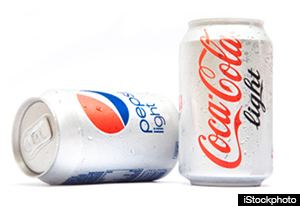
Popular culture has spent the last few decades alternating between villainizing fat and sugar, prompting food producers to unveil fat-free and sugar-free lines of their most-popular products. But just because something is missing fat or sugar doesn't necessarily make it healthy; in fact, it can be quite the contrary.
To make up for a lack of fat, companies will often add artificial chemicals like Olestra or extra sugar to enhance the taste of their product. This can lead to even higher calorie counts than their full-fat counterparts. Conversely, sugar-free products generally contain added fat and artificial sweeteners, which have caused all kinds of controversy in the health world and may actually promote weight gain. Not great for your health.
Products promoting themselves as "99 percent fat free" have become quite common throughout the prepackaged food industry, as well. What you need to realize, though, is that this is usually calculated by weight, not calories. Soup broth is a good example because it gets most of its weight from water, but may get over half of its calories from fat. Similarly, 2 percent milk is deceiving in that while fat only makes up 2 percent of the total weight, it accounts for over 1/3 of its calories!
For the other three facts, check out the full article on BuiltLean: "7 Surprising Facts About Food Industry Marketing You Should Know"
More From BuiltLean: